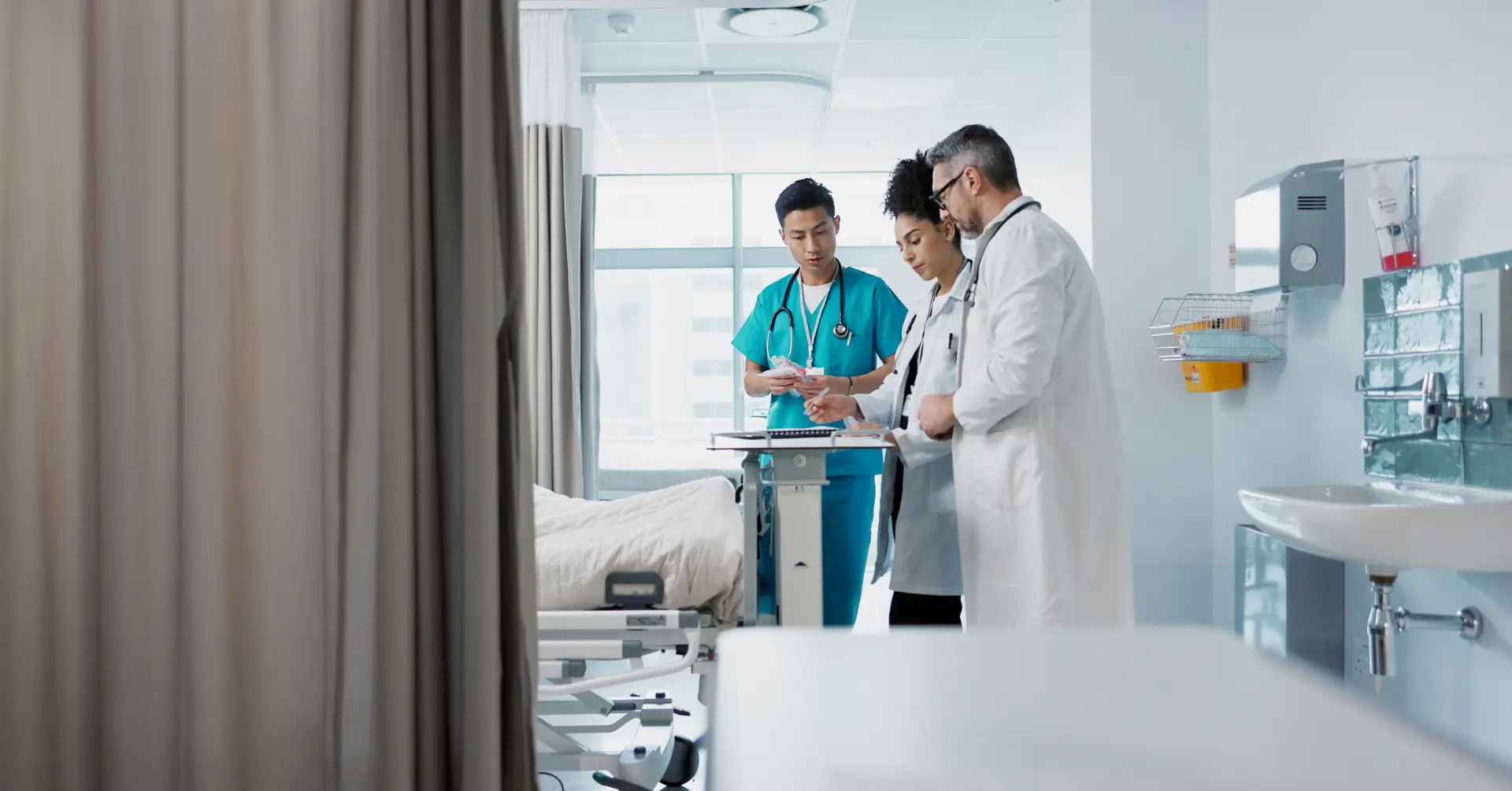Medical malpractice concerns all clinicians for a very good reason: nearly every clinician falls victim to a malpractice suit at some point in their career.
A Rand study found that by age 45, 36% of doctors in low-risk specialties and 88% of doctors in high-risk specialties are likely to have had at least one malpractice claim. By age 65, the number jumped to 75% and 99%, respectively.
The study also found that the average indemnity payment for malpractice lawsuits was $274,887 across specialties.
What is the number one cause of medical malpractice suits? Poor communication.
Taking the time to talk with patients clearly, transparently, and thoroughly is more important than ever, as good patient-doctor communication can positively impact the number and severity of medical malpractice suits.
The importance of patient-clinician communication
A solid doctor-patient relationship established through clear and effective communication is critical in preventing a malpractice claim.
Good communication builds trust and confidence. Even though it may be hard to take the time during each patient visit to talk clearly and in-depth, it’s important for your patients’ health and loyalty. Patients who feel heard and respected have a better experience and better results. Patients who trust their caregivers and feel good about their experience are less likely to sue those caregivers; even when things go wrong.
Informed consent and shared decision making
The concept of informed consent is fundamental to medical practice. Patients have the right to get information and ask questions before agreeing to treatments or procedures.
Clinicians also have an ethical responsibility to provide comprehensive information, along with available options, to patients and involve them in the decision-making process.
Best practices for patient-clinician communication
Incorporate the following best practices to reduce the chance of a patient filing a medical malpractice suit against you.
- Create protocols for clinicians and other medical professionals to follow up on, and be available for questions and guidance as needed. That includes:
- Use of interoperable digital technology to enhance patient experience and communication
- Making phone calls for follow-up
- Using a HIPAA-compliant system to avoid compromising patient privacy
- Making every effort to engage patients regarding missed appointments, follow-up care, and answering questions
- Be present and attentive during patient encounters. Being rushed during a patient visit, particularly after patients have waited a long time, changes the patient’s perception of their importance in your eyes. Sitting down, even for a brief period of time, improves patient perception of time spent with patients. Listen empathetically and let the patient tell their story. It is of no minor consequence that up to 80% of patients will forget what you told them as soon as they leave, and nearly 50% of what they remember will be recalled incorrectly. So, ensure you take the time to give thorough explanations and instructions. Listen and respond to patient concerns and questions, so they feel heard.
- Use easy-to-understand language. Avoid “doctor speak” (using words only medical professionals would understand). Give patients relevant and easy-to-understand materials and resources solely intended for their use. Upon discharge, ensure discharge criteria have been met and instructions are completed and reviewed thoroughly. Explain in layman’s terms the treatment plan along with signs and symptoms indicative of a worsening condition and therefore a need to seek medical attention.
- Add humor. According to the New York Times, as reported by Physicians Practice, studies over the last thirty years have shown that clinicians who use humor in their care spend more time educating patients about their health and are sued less often. (You don’t have to be Patch Adams, but “laughter is the best medicine,” as the saying goes.)
- Be cognizant of barriers to understanding. That includes language and cultural differences, which may impede access to care.
Take steps to proactively overcome barriers by employing translators or using tools like Google Translate or MediBabble. (According to a study, using online translation tools boosts patient satisfaction by 92%.)
Also, gain cultural competence by demonstrating your knowledge of and respect for other cultures.
According to the American Hospital Association, a culturally competent health care system “acknowledges the importance of culture, incorporates the assessment of cross-cultural relations, recognizes the potential impact of cultural differences, expands cultural knowledge, and adapts services to meet culturally unique needs.”
Communication costs and payoffs
We realize that your time is short, but communicating with patients clearly and thoroughly is not something you can take lightly, especially in this litigious age.
Lawsuits and all that goes along with them are no fun. The payoff of effective patient communication is significant in terms of outcomes and risk mitigation. Don’t let a communication gaffe be the cause of a malpractice suit.
Some last words of advice:
- Learn to make patient-doctor communication an art.
- Always (but especially in front of patients) treat other clinicians with the utmost respect.
- Leverage technology wherever possible, including the use of automated systems.
- Keep everyone who works with patients on the same page regarding communication protocols.
- Have a customer service mindset toward patient communication.






